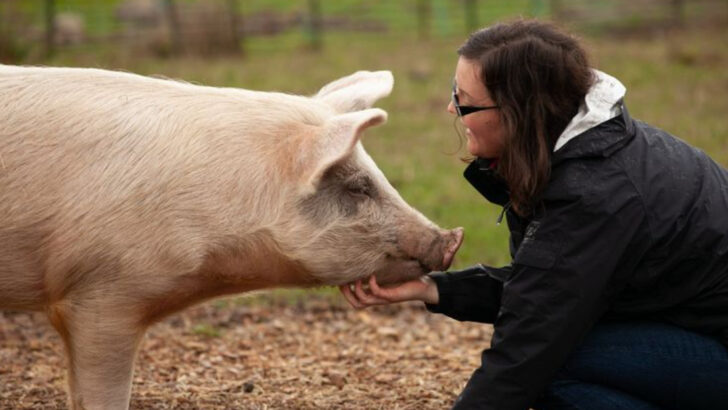From snuggly dogs to chatty parrots, certain creatures seem almost designed to hang out with us. They seek us out, trust us, and sometimes even follow us around like shadows with fur or feathers.
Then there are the loners. The ones that vanish at the sound of footsteps or glare from the treetops like you’ve interrupted their very important forest business. You can admire them—but only from a respectful distance.
This post takes you on a wild ride through 12 animals that genuinely enjoy our company… and 6 that would prefer we leave them alone. Forever. Ready to find out who loves you—and who’s barely tolerating your presence? Let’s go.
Domestic Dogs

With a heart as big as its paws, the dog is a beloved companion to many. Known for their loyalty and love, dogs have been humans’ best friends for thousands of years.
Whether it’s a playful retriever or a protective shepherd, each breed offers its unique charm and personality. Their ability to understand and respond to human emotions makes them exceptional companions. Dogs are often found participating in various human activities, from herding sheep to assisting in search and rescue missions.
Did you know? Dogs can be trained to detect certain diseases in humans, showcasing their remarkable intelligence and empathy.
Cats

Cats, with their mysterious allure, have captivated humans for centuries. While often seen as independent, many cats enjoy the comfort of human companionship. Their gentle purring and soft fur provide a sense of calm and relaxation.
Historically, cats have been revered in various cultures, from ancient Egypt to modern households. They often adapt well to their human environments, offering affection on their terms.
A fun fact: Cats’ whiskers are highly sensitive, allowing them to navigate their surroundings with precision, even in the dark.
Horses
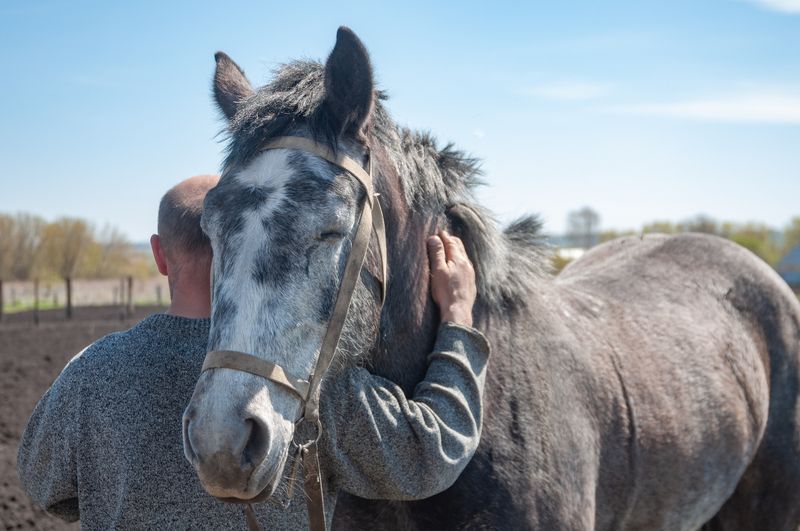
Horses have been by human sides for centuries, serving as faithful partners in work and leisure. Their graceful presence and intuitive understanding make them unique companions.
From competitive equestrian sports to therapeutic riding, horses offer a wide array of interactions with humans. Their ability to sense human emotions and respond with empathy is truly remarkable.
Did you know? Horses can sleep both lying down and standing up, showcasing their adaptability and unique physiology.
Guinea Pigs

Guinea pigs, with their cheerful squeaks and gentle demeanor, make delightful pets for families. These small rodents are known for their sociable nature and enjoy spending time with their human companions.
Often housed in cages with tunnels and toys, guinea pigs thrive in interactive environments. Their curious and playful antics bring joy to both children and adults.
A fun fact: Guinea pigs communicate with a range of sounds, from purring to chirping, each conveying different emotions.
Parrots
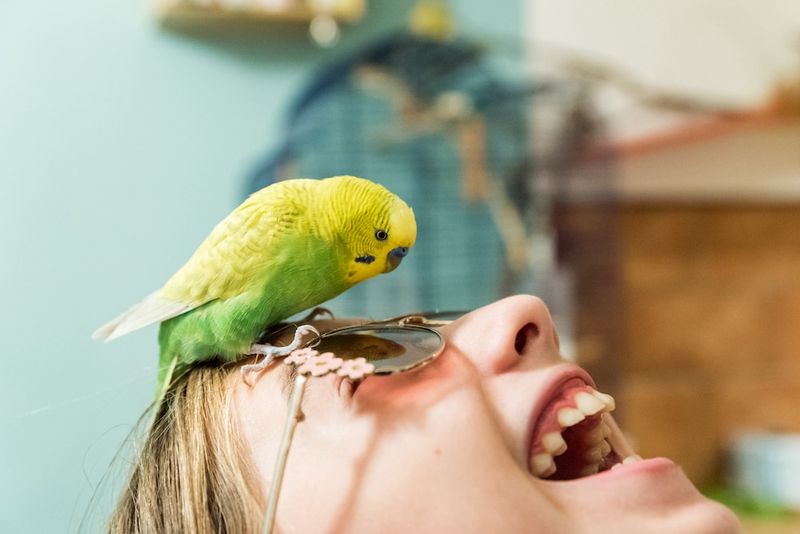
Parrots, with their vibrant plumage and playful personalities, are known for their ability to mimic human speech. These intelligent birds form strong bonds with their owners and thrive on social interaction.
Living in lively environments filled with toys and puzzles, parrots enjoy mental stimulation and companionship.
Did you know? Some species of parrots can live for over 50 years, making them lifelong companions for dedicated owners.
Rabbits

Rabbits, with their soft fur and gentle nature, are cherished pets for many. These curious creatures enjoy exploring their surroundings and can be litter-trained like cats.
Rabbits form bonds with their human caregivers, often seeking attention and affection. A whimsical fact: Rabbits’ teeth never stop growing, so they need to chew on various items to keep them trim and healthy.
Dolphins
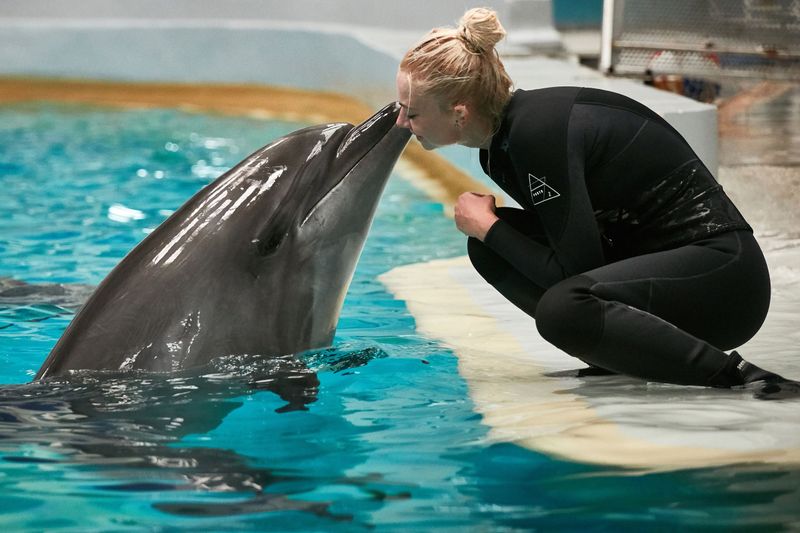
Dolphins are renowned for their intelligence and playful interactions with humans. Often seen leaping alongside boats, these marine mammals exhibit a natural curiosity and friendliness.
In various cultures, dolphins are symbols of harmony and protection. They have been known to rescue humans in distress at sea, showcasing their empathetic nature.
A captivating fact: Dolphins communicate using a complex system of clicks and whistles, allowing them to convey emotions and information over long distances.
Kangaroos

Kangaroos, iconic symbols of Australia, are known for their powerful legs and unique hopping gait. In certain areas, they have become accustomed to human presence and may even approach tourists for food.
These marsupials are social animals, often living in groups known as mobs. Their interactions with humans are typically gentle, although they can show strength when needed.
Did you know? A kangaroo’s tail is strong enough to support its entire body weight, helping them balance while hopping.
Elephants
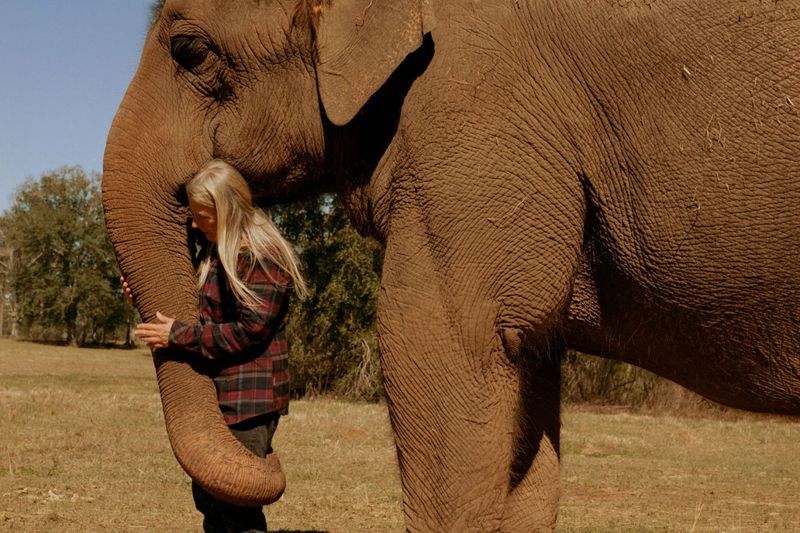
Elephants, with their massive size and gentle souls, have fascinated humans for generations. Known for their intelligence and memory, they often form strong bonds with their caretakers.
In sanctuaries and conservation areas, elephants are protected and cared for, allowing them to thrive.
A surprising fact: Elephants can communicate through low-frequency rumbles that travel over long distances, enabling them to stay connected with their herd.
Pigs
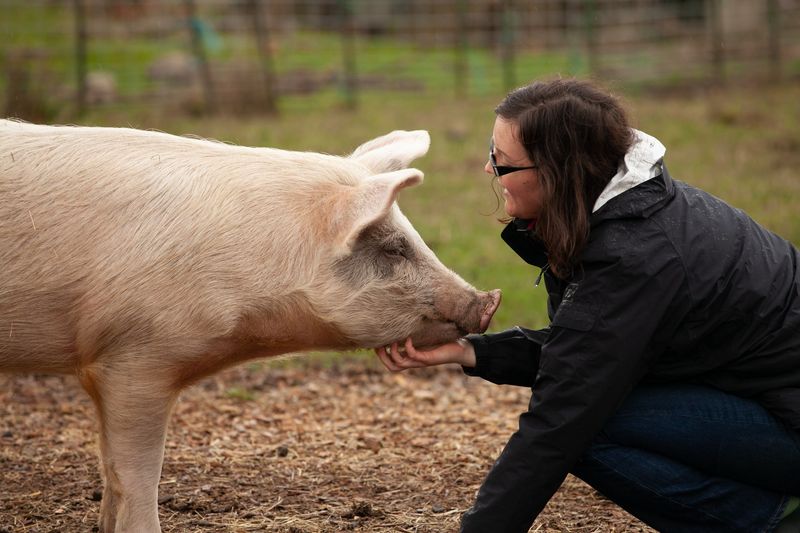
Pigs, known for their intelligence and playful demeanor, are often misunderstood animals. These social creatures form close bonds with both humans and other animals, thriving in environments filled with mental stimulation.
On farms and in sanctuaries, pigs display a range of emotions, from curiosity to contentment.
An interesting fact: Pigs are more intelligent than dogs, capable of learning tricks and solving puzzles.
Goats

Goats, with their mischievous antics and lively personalities, are a favorite among farm animals. Known for their curiosity, they enjoy exploring and interacting with their surroundings.
Goats are often kept on farms for milk and meat, but their playful nature also makes them delightful companions.
A quirky fact: Goats have rectangular pupils, giving them a wide field of vision to spot predators.
Rats
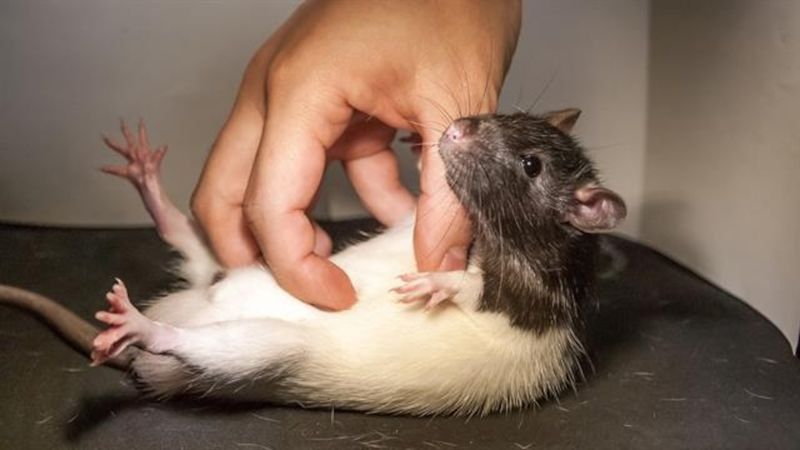
Rats, often misunderstood, can make affectionate and intelligent pets. These small rodents are known for their social nature and ability to form strong bonds with their human caregivers.
In controlled environments, rats display a level of intelligence comparable to dogs, capable of learning tricks and solving puzzles.
Did you know? Rats are used in various scientific studies due to their cognitive abilities and adaptability.
Wolves
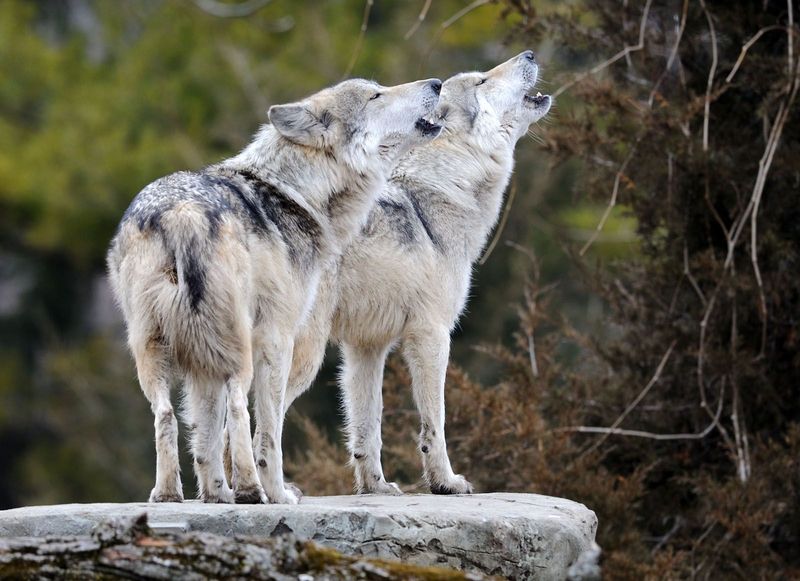
Wolves, with their enigmatic presence, prefer the wild solitude over human company. Though closely related to domestic dogs, they are wild at heart and thrive in their natural habitats.
Wolves are social animals, living in packs that operate with a complex hierarchy. Human encounters are rare and often avoided.
Did you know? Wolves communicate through howls, barks, and whimpers, creating a rich vocal language that strengthens pack bonds.
Tigers
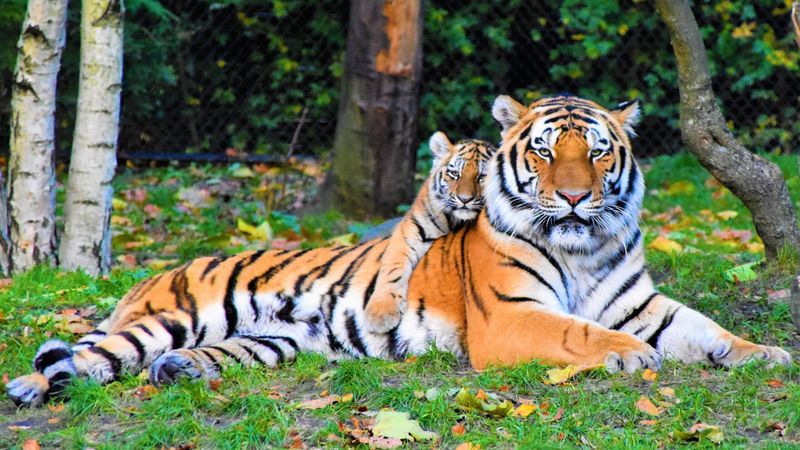
Tigers, with their striking stripes and commanding presence, are solitary creatures that prefer the dense jungles to human company. These majestic big cats are symbols of strength and independence.
In the wild, tigers are apex predators, hunting alone and relying on stealth and power. Human encounters are rare and often result in conflict.
An intriguing fact: Each tiger’s stripe pattern is unique, much like a human fingerprint.
Bears
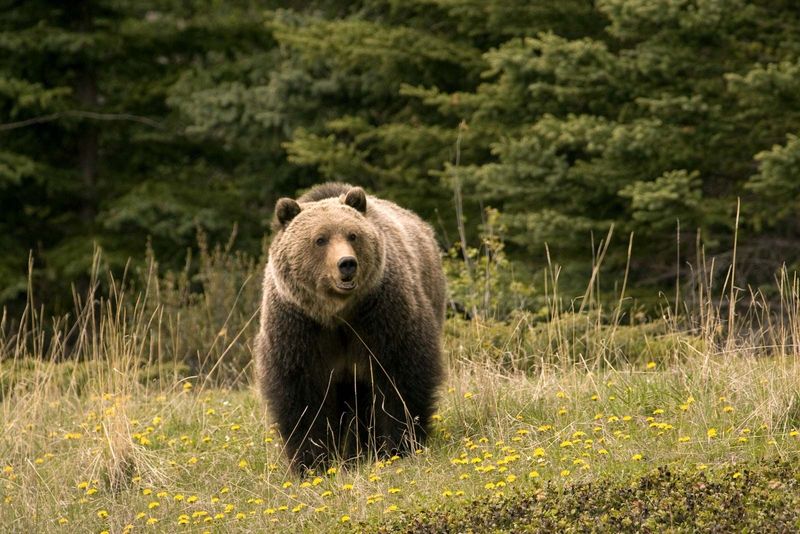
Bears, with their formidable presence and solitary lifestyle, typically avoid humans. These powerful creatures are often found in remote forests or mountain ranges, where they can roam freely.
While bears are solitary by nature, they are highly intelligent and adaptable, capable of learning and problem-solving.
A surprising fact: Despite their size, some bear species are excellent climbers, scaling trees with ease.
Crocodiles
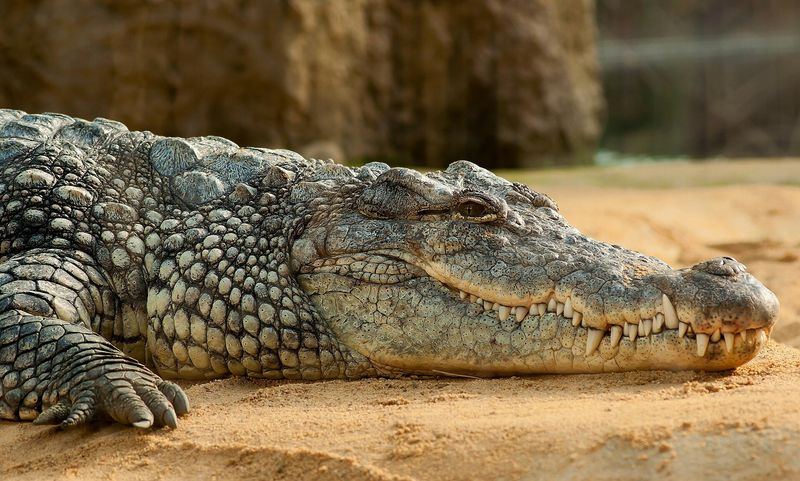
Crocodiles, ancient reptiles with powerful jaws, are best admired from afar. These formidable predators are known for their stealth and strength, dwelling in rivers and swamps.
Interactions with humans are rare and usually occur in captivity or during research efforts.
A fascinating fact: Crocodiles have remained relatively unchanged for millions of years, showcasing their evolutionary success.
Sharks
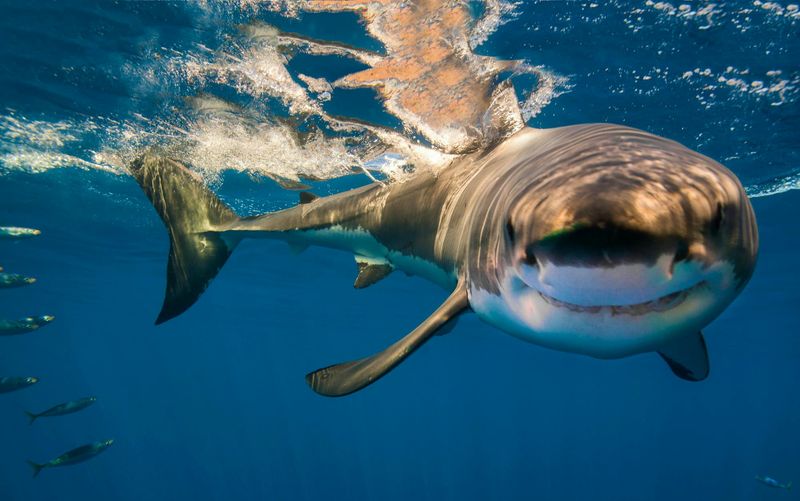
Sharks, with their predatory prowess, are often misunderstood giants of the sea. While they instill fear, these creatures are vital to marine ecosystems and typically avoid human interaction.
Encounters are rare and often exaggerated by popular media. Sharks are more interested in fish than humans.
An intriguing fact: Sharks have been around for over 400 million years, adapting to countless changes in their environment.
Snakes
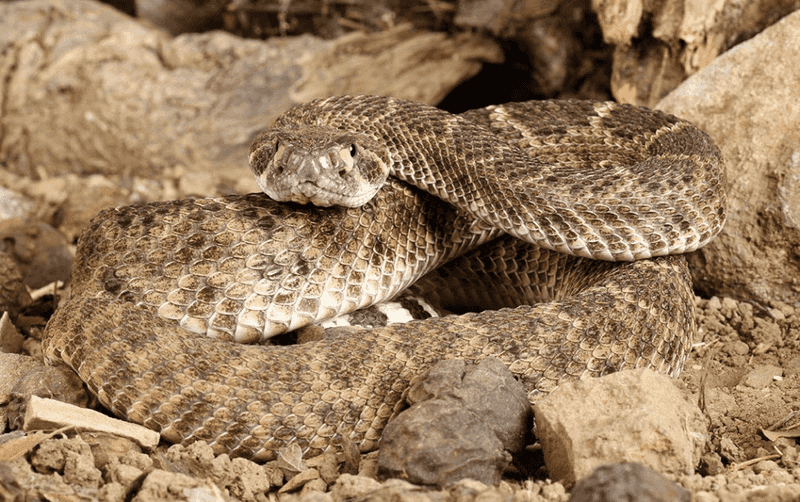
Snakes, with their sleek bodies and mesmerizing patterns, prefer solitude over human company. These reptiles are often found in forests, deserts, and grasslands, where they quietly hunt and thrive.
While some snakes are feared for their venom, many are harmless and play crucial roles in controlling pest populations.
A fascinating fact: Snakes can sense their environment through vibrations, using their tongue to “taste” the air and gather information.

